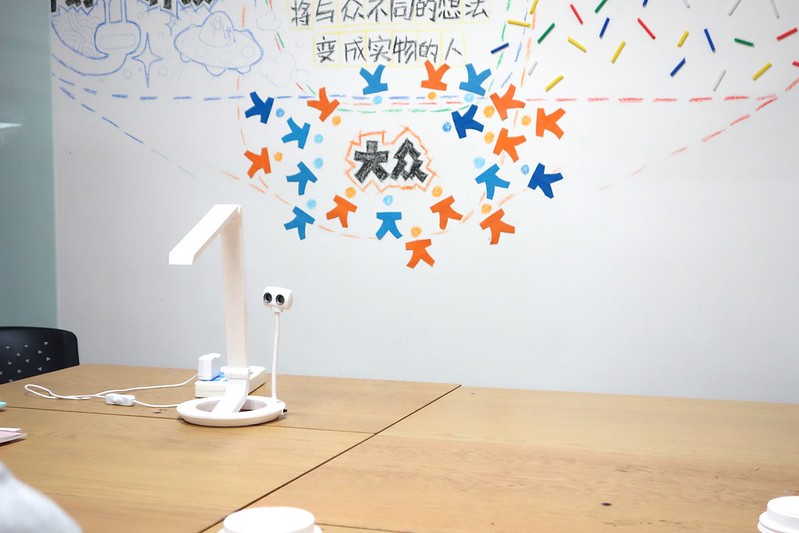In late 2016, the White House published a report, “Artificial Intelligence, Automation, and the Economy” (PDF). It’s a solid work of research and forecasting, and proposes equally solid policy recommendations. Here’s part of the framing, from the report’s intro:
AI-driven automation will continue to create wealth and expand the American economy in the coming years, but, while many will benefit, that growth will not be costless and will be accompanied by changes in the skills that workers need to succeed in the economy, and structural changes in the economy. Aggressive policy action will be needed to help Americans who are disadvantaged by these changes and to ensure that the enormous benefits of AI and automation are developed by and available to all.
This cuts right to the chase: Artificial intelligence (AI) will create wealth, and it will replace jobs. AI will change the future of work, and the economy.
Revisiting this report made me wonder if similar policy research exists in Germany and at the European level? A quick search online brought up bits and pieces (Merkel arguing for bundling know-how for AI and acknowledging that AI spending is low in Europe, demands for transparency in algorithms). However, there doesn’t seem to be an overarching guiding policy. (I asked federal government spokesperson Steffen Seibert on Twitter, but so far he hasn’t responded. Which is fair—why would he!)
Germany has a mixed track record of tech policy
For the record: In other areas, Germany is making good progress. Take autonomous driving, for example. Germany just adopted an action plan on automated driving that regulates key points of how autonomous vehicles should behave on the street—and regulates it well! Key points include that autonomous driving is worth promoting because it causes fewer accidents, dictates that damage to property must take precedence over personal injury (aka life has priority), and that in unavoidable accident situations there may not be any discrimination between individuals based on age, gender, etc. It even includes data sovereignty for drivers. Well done!
On the other hand, for the Internet of Things (IoT) Germany squandered opportunities in that IoT is framed almost exclusively as industrial IoT under the banner of Industrie 4.0. This is understandable given Germany’s manufacturing-focused economy, but it excludes a huge amount of super interesting and promising IoT. It’s clearly the result of successful lobbying but at the expense at a more inclusive, diverse portfolio of opportunities.
So where do we stand with artificial intelligence in Germany? Honestly, in terms of policy I cannot tell.
Update: The Federal Ministry of Education and Research recently announced an initiative to explore AI: Plattform Lernende Systeme (“platform living systems”). Thanks to Christian Katzenbach for the pointer!
AI & the future of work
The White House AI report talks a lot about the future of work, and of employment specifically. This makes sense: It’s one of the key aspects of AI. (Some others are, I’d say, opportunity for the creation of wealth on one side and algorithmic discrimination on the other.)
How AI will impact the work force, the economy, and the role of the individual is something we can only speculate about today.
In a recent workshop with stipendiaries of the Heinrich-Böll-Foundation on the future of work we explored how digital, AI, IoT and adjacent technologies impact how we work, and how we think about work. It was super interesting to see this diverse group of very, very capable students and young professionals bang their heads against the complexities in this space. Their findings mirrored what experts across the field also have been finding: That there are no simple answers, and most likely we’ll see huge gains in some areas and huge losses in others.
The one thing I’d say is a safe bet is this: Like all automation before, depending on the context we’ll see AI either displace human workers or increase their productivity. In other words, some human workers will be super-powered by AI (and related technologies), whereas others will fall by the wayside.
Over on Ribbonfarm, Venkatesh Rao phrases this very elegantly: Future jobs will either be placed above or below the API: “You either tell robots what to do, or are told by robots what to do.” Which of course conjures to mind images of roboticized warehouses, like this one:
Just to be clear, this is a contemporary warehouse in China. Amazon runs similar operations. This isn’t the future, this is the well-established present.
I’d like to stress that I don’t think a robot warehouse is inherently good or bad. It depends on the policies that make sure the humans in the picture do well.
Education is key
So where are we in Europe again? In Germany, we still try to define what IoT and AI means. In China it’s been happening for years.
This picture shows a smart lamp in Shenzhen that we found in a maker space:

What does the lamp do? It tracks if users are nearby, so it can switch itself off when nobody’s around. It automatically adjusts light the temperature depending on the light in the room. As smart lamps go, these features are okay: Not horrible, not interesting. If it came out of Samsung or LG or Amazon I wouldn’t be surprised.
So what makes it special? This smart lamp was built by a group of fifth graders. That’s right: Ten and eleven year olds designed, programmed, and built this. Because the curriculum for local students includes the skills that enable them to do this. In Europe, this is unheard of.
I think the gap in skills regarding artificial intelligence is most likely quite similar. And I’m not just talking about the average individual: I’m talking about readiness at the government level, too. Our governments aren’t ready for AI.
It’s about time we start getting ready for AI, IoT, and robotics. Always a fast mover, Estonia considers a law to legalize AI, and they smartly kick off this process with a multi-stakeholder process.
What to do?
In Germany, the whole discussion is still in its earliest stages. Let’s not fall into the same trap as we did for IoT: Both IoT and AI are more than just industry. They are both broader and deeper than the adjective industrial implies.
The White House report can provide some inspiration, especially around education policy.
We need to invest in what OECD calls the active labor market policies, i.e. training and skill development for adults. We need to update our school curricula to get youths ready for the future with both hands-on applicable skills (coding, data analysis, etc.) and with the larger contextual meta skills to make smart decisions (think humanities, history, deep learning).
We need to reform immigration to allow for the best talent to come to Europe more easily (and allow for voting rights, too, because nobody feels at home where they pay taxes with no representation).
Zooming out to the really big picture, we need to start completely reforming our social security systems for an AI world that might not deliver full employment ever again. This could include Universal Basic Income, or maybe rather Universal Basic Services, or a different approach altogether.
This requires capacity building on the side of our government. Without capacity building, we’ll never see the digital transformation we need to get ready for the 21st century.
But I know one thing: We need to kick off this process today.
///
Please note: This is cross-posted from Medium.


![A whole bunch of links [newsletter] A whole bunch of links [newsletter]](https://thewavingcat.com/wp-content/uploads/2014/10/heroslider_gradient.jpg)